MercoPress. South Atlantic News Agency
Tag: Inflation
-
Monday, April 26th 2021 - 09:03 UTC
Venezuela remains the most “miserable” country - Argentina not far behind

Venezuela easily held to the dubious honour of being at the top of the list of the 2020 Global Economic Misery Index, while Argentina was merely seven notches behind.
-
Friday, April 16th 2021 - 09:39 UTC
Cost of living in Argentina rises 4.8% in March alone

Argentina's Consumer Price Index (CPI-Cost of living) rose 4.8% during March, 1.2 percentage points above February's 3.6%, the National Institute of Statistics and Censuses (INDEC) announced Thursday.
-
Tuesday, April 13th 2021 - 09:48 UTC
Chile's Central Bank monthly report foresees 2021 inflation at 3.2%
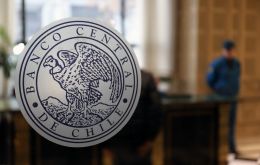
Chile's monthly report issued by the Central Bank Monday forecast inflation to close 2021 with a cumulative 3.2%, with no significant changes in sight for 2022 and 2023.
-
Saturday, April 10th 2021 - 10:53 UTC
Argentine inflation forecast at 46% for year 2021, 3.9% for March alone
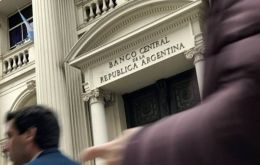
Argentina's Central Bank Friday announced the yearly inflation for 2021 was expected to reach 46%, while figures for the past month of March were around 3.9%. The official peso/US dollar exchange rate was foreseen at $ 115/ US$ 1 by the end of this year.
-
Friday, April 9th 2021 - 10:30 UTC
Argentina's INDEC figures “encouraging” for government, still not for people

While inflation grows rampant and people lose some or all of their income in the middle of the coronavirus restrictions, Argentina's National Institute of Statistics and Census (INDEC) Thursday released a new economic report which showed positive figures.
-
Thursday, March 18th 2021 - 08:53 UTC
Fearing a spike in inflation, Brazil hikes interest rate 75 basis points for the first time since 2015
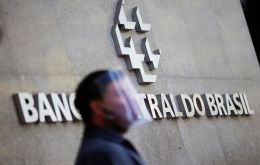
Brazil's central bank on Wednesday announced a first interest rate hike since 2015, a surprising 75 basis point increase to 2.75% and anticipated a similar increase in May to fight inflation even as the economy struggles during the pandemic.
-
Thursday, March 4th 2021 - 09:24 UTC
Argentina's banks face a tough year: bad loans, inflation and regulations
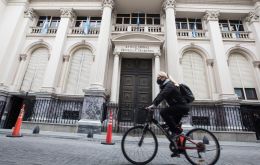
Rising inflation plus bad loans and government regulations anticipate a tough 2021 according to the CEO of Argentina's biggest private bank by market capitalization. “If inflation is high, there is a risk that bank results will fall to very low or negative levels in real terms,” Fabian Kon said in an interview in Buenos Aires.
-
Wednesday, March 3rd 2021 - 08:38 UTC
Producer price inflation in Brazil anticipates Central bank will raise interest rates

Brazil's statistics agency IBGE said on Tuesday the monthly rate of producer price inflation kicked off this year at its second highest, with prices rising across all 24 activities surveyed.
-
Thursday, February 18th 2021 - 08:50 UTC
Fearful of inflation Argentina claims consumer corporations are holding back production volumes
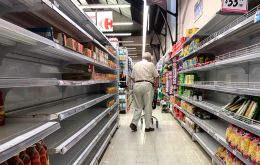
With inflation far from target and increasing consumer prices, Argentina is investigating firms including Danone, Procter & Gamble, Fargo, miller Cañuelas, abattoir Paledini and Unilever, along with food producers like Bunge, accusing them of deliberately holding back production.
-
Friday, February 12th 2021 - 09:49 UTC
January inflation in Argentina, 4%, questioning government 2021 targets

Argentina's Consumer Price Index, CPI rose in January for the second month running 4%, questioning the government's target of 30% inflation in 2021. In effect twelve-month inflation reached 38,5% in January, following on the 4% for December, according to the latest release from the country's stats office, Indec.
